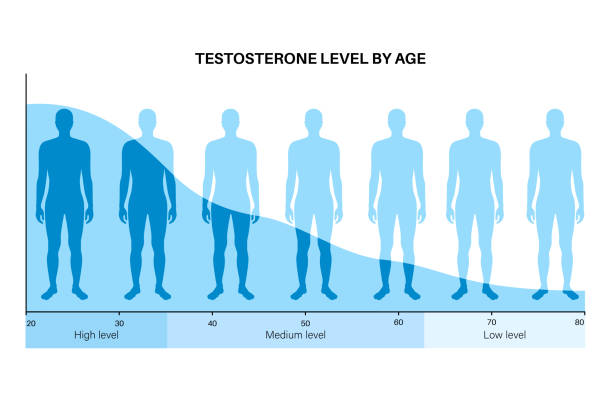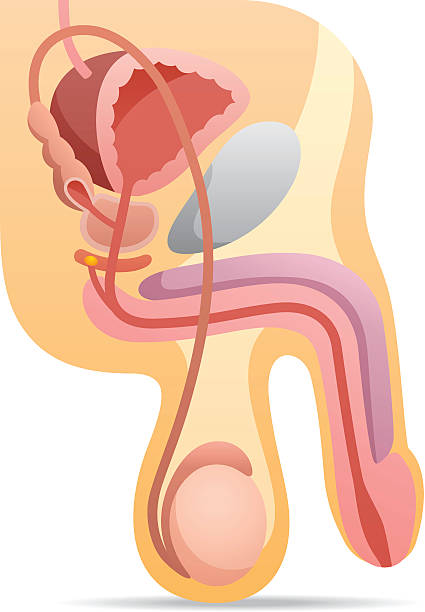Menopause in Men, often referred to as “Andropause,” is a natural but less-discussed phenomenon marking a significant hormonal transition in a man’s life. While it doesn’t mirror the abrupt hormonal changes seen in women during menopause, it’s essential to acknowledge its existence and the potential impact it can have on men’s health and well-being.
What Is Menopause in Men

Male menopause is characterized by a gradual decline in testosterone levels, typically starting in a man’s late 40s or early 50s, although it can occur earlier in some cases. Unlike the sudden onset of menopause in women, where estrogen levels plummet, the hormonal changes in men are more subtle and can take years to manifest fully. This decline in testosterone can lead to various physical and emotional symptoms, affecting overall quality of life.
Symptoms of Menopause in Men
- Decreased libido: One of the most common symptoms of male menopause is a decline in sexual desire or libido. This can result in reduced interest in sexual activities and intimacy.
- Erectile dysfunction: Another prevalent symptom is difficulty achieving or maintaining erections. While occasional erectile dysfunction is common and often not a cause for concern, persistent issues can indicate underlying hormonal imbalances.
- Fatigue and low energy: Men experiencing male menopause often report feeling more tired and having lower energy levels than usual. This fatigue can impact daily activities and overall productivity.
- Mood changes: Hormonal fluctuations during male menopause can lead to mood swings, irritability, and feelings of sadness or depression. These emotional changes can affect relationships and mental well-being.
- Muscle loss and weight gain: Declining testosterone levels can contribute to reduced muscle mass and increased body fat, particularly around the abdomen. This shift in body composition can impact self-esteem and physical health.
- Sleep disturbances: Some men may experience sleep problems such as insomnia or disrupted sleep patterns during male menopause. Poor sleep quality can exacerbate other symptoms and affect overall health.
Diagnosis of Menopause in Men
Diagnosing male menopause involves a combination of symptom evaluation and hormonal testing. Since the symptoms of male menopause can overlap with other health conditions, it’s essential to consult a healthcare professional for an accurate assessment.
Medical History and Physical Examination
During the initial evaluation, a healthcare provider will inquire about the patient’s medical history, including any symptoms they may be experiencing and their duration. The healthcare provider may also conduct a comprehensive physical examination to assess overall health and identify any underlying issues.
Hormonal Testing
Hormonal testing is crucial for confirming a diagnosis of male menopause. This typically involves measuring testosterone levels through blood tests. While there is no universally accepted threshold for testosterone levels defining male menopause, levels below the normal range for a man’s age may indicate hormonal imbalances.
Additional Testing
In some cases, additional tests may be ordered to rule out other medical conditions that could be contributing to the symptoms. These may include tests to evaluate thyroid function, blood glucose levels, and lipid profiles.
Can Menopause in Men Be Treated?
While male menopause is a natural part of aging, there are various treatment options available to manage symptoms and improve quality of life. The most appropriate approach will depend on the individual’s symptoms, overall health, and preferences.
Hormone Replacement Therapy (HRT)
Hormone replacement therapy involves supplementing testosterone to restore levels to a more optimal range. This can be administered through injections, patches, gels, or pellets implanted under the skin. HRT can help alleviate symptoms such as low libido, erectile dysfunction, fatigue, and mood changes. However, it’s essential to weigh the potential benefits against the risks, as HRT may increase the risk of certain health issues such as cardiovascular disease and prostate cancer.
Lifestyle Modifications
Making lifestyle changes can also help manage symptoms of male menopause and improve overall well-being. These may include:
- Regular exercise: Engaging in regular physical activity can help maintain muscle mass, improve mood, and boost energy levels.
- Healthy diet: Following a balanced diet rich in fruits, vegetables, lean proteins, and whole grains can support overall health and help manage weight.
- Stress management: Practicing stress-reduction techniques such as meditation, deep breathing exercises, or yoga can help alleviate mood swings and promote relaxation.
- Adequate sleep: Prioritizing good sleep hygiene and aiming for seven to eight hours of quality sleep per night can improve energy levels and mood.
Psychological Support
Seeking psychological support from a therapist or counselor can be beneficial for men experiencing emotional symptoms such as depression or anxiety. Talk therapy can provide coping strategies and support to navigate the challenges of male menopause.
Regular Health Monitoring
Regular follow-up appointments with a healthcare provider are essential for monitoring hormone levels, evaluating treatment effectiveness, and addressing any emerging concerns. Adjustments to treatment plans may be necessary based on individual response and changing health needs.
In conclusion, male menopause is a natural phase of life that can present various physical and emotional challenges for men. By understanding the symptoms, seeking proper diagnosis, and exploring appropriate treatment options, men can effectively manage the effects of male menopause and maintain a fulfilling and healthy lifestyle.

